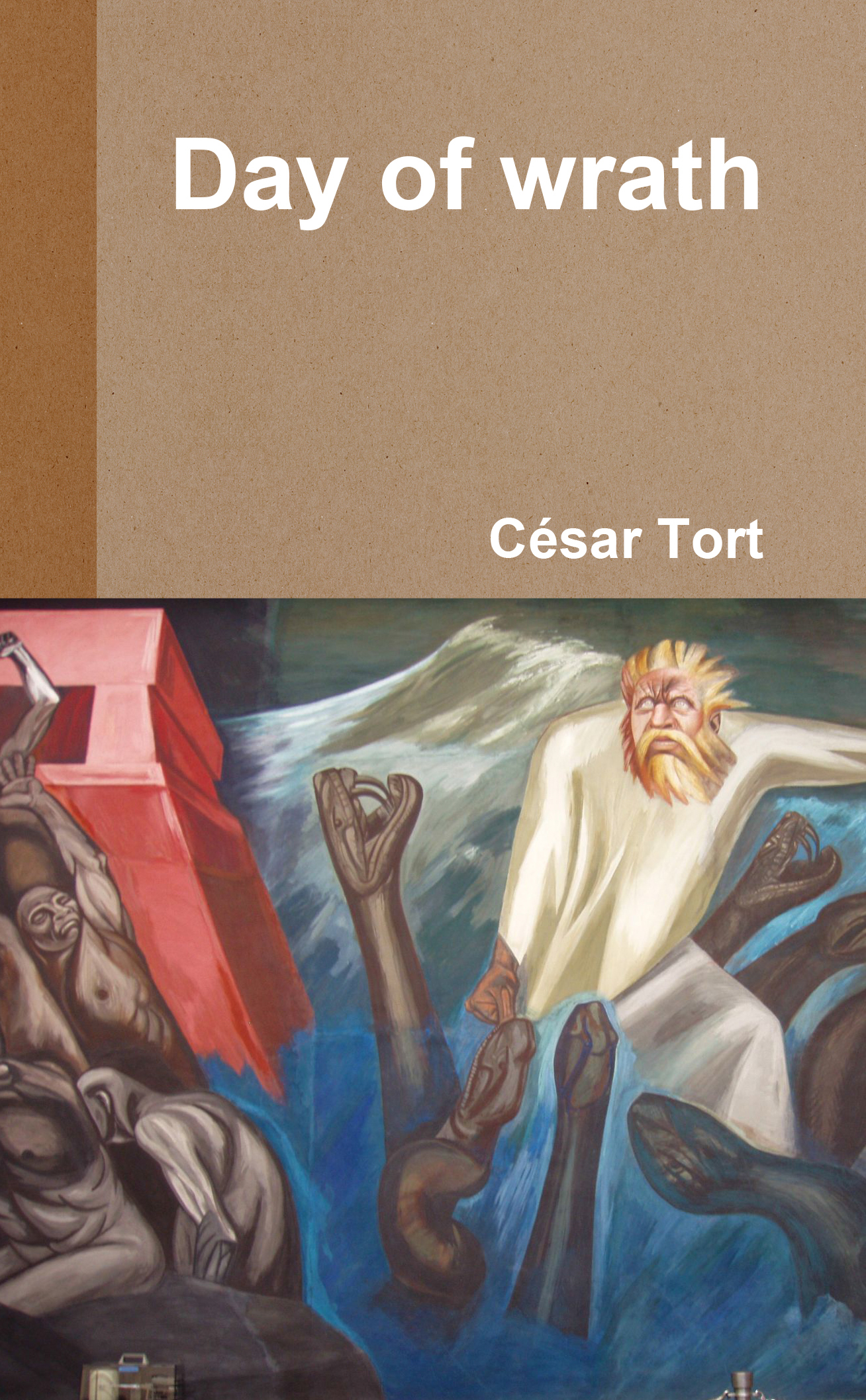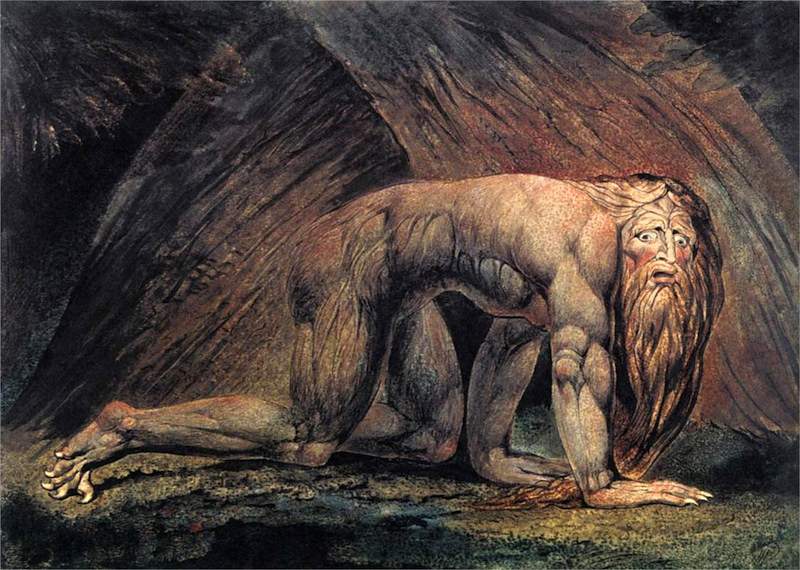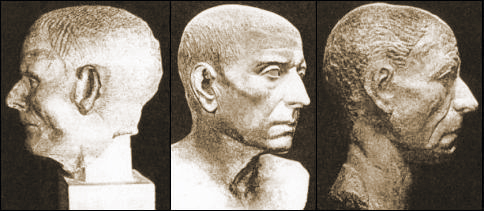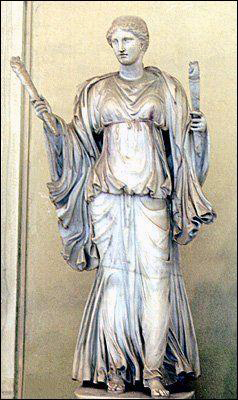Julian presiding at a conference of Sectarians
(Edward Armitage, 1875)
Julian Augustus
In March 351, I was admitted to the mysteries of Mithras. On that day I watched the rising of the sun; and I watched its setting, taking care to be unobserved, for since Constantius had made it illegal to pray to the sun, people had even been arrested for watching a sunset. Spies and informers were everywhere.
I had told Ecebolius that I intended to spend the day hunting on the slopes of Mount Pion. Since he hated hunting, he excused himself as I knew he would. He quoted Homer. I quoted Horace. He quoted Virgil. I quoted Theocritus. Together we used up nearly all of literature’s references to hunting.
The next obstacle was the bodyguard. Twelve soldiers and one officer were assigned to my household. At all times I was attended by at least two men. What to do about them? It was Maximus who decided that since Mithras is the soldier’s religion, at least two of the soldiers should prove sympathetic. Maximus was right. Of the twelve, five were Mithraists. It was then an easy matter to get two of the five assigned to me for the day. As Mithraic brothers, they were under the seal of secrecy.
An hour before dawn, Oribasius, the soldiers and I left the house. At the mountain’s edge we were met by Maximus and nine fathers. In silence we climbed the slope. At a pre-ordained spot, beneath a fig tree, we stopped and waited for the sun to rise.
The sky turned pale. The morning star shone blue. Dark clouds broke. Then just as the sun appeared on the horizon, a single shaft of light struck the rock behind us and I realized that it was not just ordinary rock, but a door into the mountainside. We prayed then to the sun and to his companion Mithras, our saviour.
When the sun was at last above the horizon, Maximus opened the door into the mountain and we entered a small cave with seats carved out of the rock. Here Oribasius and I were told to wait while the fathers of Mithras withdrew into yet another cave, the inner sanctuary. Thus began the most momentous day of my life. The day of the honey and of the bread and the wine; the day of the seven gates and the seven planets; the day of challenges and of passwords; the day of prayer and, at its end (past Raven, Bride, Soldier, Lion, Persian, Courier of the Sun, and Father), the day of Nama Nama Sebesio.
Libanius: Of all the mysteries, excepting those at Eleusis, the Mithraic is the most inspiring, for in the course of it one actually experiences the folly of earthly vanity. At each of the seven stages, the initiate acts out what his soul will one day experience as it rises amongst the seven spheres, losing one by one its human faults. At Ares, the desire for war returns to its source; at Zeus, ambition is lost; at Aphrodite, sex, and so on until the soul is purged. Then… But I can say no more. Nama Nama Sebesio.
Julian Augustus
When the day ended, Oribasius and I stumbled from the cave, born again.
It was then that it happened. As I looked at the setting sun, I was possessed by light. What is given to few men was given to me. I saw the One. I was absorbed by Helios and my veins coursed not with blood but light.
I saw it all. I saw the simplicity at the heart of creation. The thing which is impossible to grasp without the help of divinity, for it is beyond language and beyond mind: yet it is so simple that I marvelled at how one could not have known what is always there, a part of us just as we are part of it. What happened inside the cave was a testing and a learning, but what happened to me outside the cave was revelation.
I saw the god himself as I knelt among sage bushes, the red slanting sunlight full in my face. I heard that which cannot be written or told and I saw that which cannot be recorded in words or images. Yet even now, years later, it is as vivid in retrospect as it was at the time. For I was chosen on that steep mountainside to do the great work in which I am now engaged: the restoration of the worship of the One God, in all his beautiful singularity.
I remained kneeling until the sun was gone. Then I knelt in darkness for what I am told was an hour. I knelt until Oribasius became alarmed and awakened me… or put me to sleep, for the “real” world ever since has seemed to me the dream while my vision of Helios is the reality.
“Are you all right?”
I nodded and got to my feet. “I have seen…” But I stopped. I could not say what I had seen. Even now, writing this memoir, I cannot describe what I experienced since there is nothing comparable in ordinary human experience.
But Maximus immediately recognized what had happened to me. “He has been chosen,” he said. “He knows.”
Silently we returned to the city. I did not want to talk to anyone, not even to Maximus, for I was still enfolded by wings of light. Even the back of my hand where I had received the sacred tattoo did not hurt me. But at the city gate my absorption was rudely shattered by a large crowd which surrounded me, shouting, “Great news!”
I was bewildered. All I could think was: has the god remained with me? is what I saw visible to all? I tried to speak to Maximus and Oribasius but we could not make ourselves heard.
At the prefect’s house, I found Ecebolius with the town prefect and what looked to be the whole council. When they saw me, they fell to their knees. For an instant I thought it was indeed the end of the world and that I had been sent as messenger to separate the good from the bad. But Ecebolius quickly dispelled all thought of apocalypse.
“Most noble Julian, your brother…” All about us, men began to repeat Gallus’s names and titles. “… has been raised by the divine Augustus to share with him the purple. Gallus is Caesar in the East. He is also to be married to Constantia, divine sister of the divine Augustus!”
There was loud cheering and eager hands touched my robe, my hands, my arms. Favours were requested, blessings demanded. Finally, I broke through the mob and got inside the house.
“But why are they all behaving like lunatics?” I turned on Ecebolius, as though it were his fault.
“Because you are now the brother of a reigning Caesar.”
“Much good it will do them… or me.” This was unwise, but it relieved me to say it.
“Surely you don’t want them to love you for yourself?” Oribasius teased me. “You quite enjoyed the attention, until you heard the news.”
“Only because I thought it was the sun…” I stopped myself just in time.
“The sun?” Ecebolius looked puzzled.
“Only the son of God should be treated in this fashion,” said Maximus smoothly. “Men should not worship other men, not even princes.”
Ecebolius nodded. “A relic of the bad old days, I’m afraid. The Augustus of Rome is of course ‘divine’ though not truly a god as men used to think. But come in, come in. The baths are ready. And the prefect is giving us a banquet to celebrate the good news.”
So I beheld the One God on the same day that I learned my brother had been made Caesar. The omen was plain enough. Each was now set in his destiny. From that day on I was Hellenist or, as the Galileans like to call me (behind my back, of course!), apostate. And Gallus reigned in the East.









